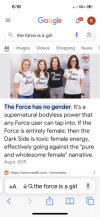I'm not sure it's helpful to think of it as either "appeal to" or "alienate."
Here's my take:
If you think of Disney's audience as being made up of a whole bunch of different audiences and Disney's products as being focused on/targeted at those audiences, you can see how there might be some at the "center" of that target group and others more towards the fringes.
For a long time, Disney was able to "aim" at the "center" of its audiences, which was a majority group that Disney knew how to connect with (and sell things to). I think of this as the "legacy audience." Stories were largely told by and through the perspectives of those centered audiences, but it reached a very wide group of audiences to varying degrees.
To grow the total audience (beyond just the "center") to strengthen its loyalty and spending, Disney seems to have tried shifting the focus away from what was the "center" more towards some who were not squarely part of the center. These are the "new" audiences-- they've been there the whole time, but maybe haven't been the focus. Disney's diversity emphasis has been to try to focus on these audiences. But these new audiences don't seem to have yet responded to these newly targeted offerings with the sort of demand the center previously had.
Problem is, the "center" has changed, and become fragmented and polarized. Pleasing these fragments AND those in the "new" audiences who were not historically at the center is nearly impossible. What's left of the center is loud and angry about their disappointment that they might not be at the very center of Disney's products anymore.
So the current situation is fraught: Disney's audience landscape is now an angry remnant of the formerly-center audiences, a mass of typically-lukewarm off-center audiences, and not-yet-convinced fringe audiences.
BTW, I find Disney solely responsible for the situation in which it finds itself.


